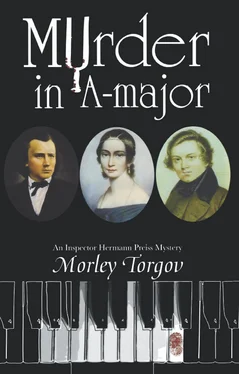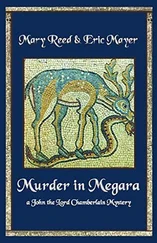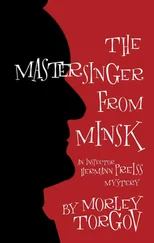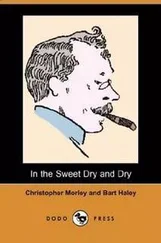Morley Torgov - Murder in A-Major
Здесь есть возможность читать онлайн «Morley Torgov - Murder in A-Major» весь текст электронной книги совершенно бесплатно (целиком полную версию без сокращений). В некоторых случаях можно слушать аудио, скачать через торрент в формате fb2 и присутствует краткое содержание. Жанр: Исторический детектив, на английском языке. Описание произведения, (предисловие) а так же отзывы посетителей доступны на портале библиотеки ЛибКат.
- Название:Murder in A-Major
- Автор:
- Жанр:
- Год:неизвестен
- ISBN:нет данных
- Рейтинг книги:5 / 5. Голосов: 1
-
Избранное:Добавить в избранное
- Отзывы:
-
Ваша оценка:
- 100
- 1
- 2
- 3
- 4
- 5
Murder in A-Major: краткое содержание, описание и аннотация
Предлагаем к чтению аннотацию, описание, краткое содержание или предисловие (зависит от того, что написал сам автор книги «Murder in A-Major»). Если вы не нашли необходимую информацию о книге — напишите в комментариях, мы постараемся отыскать её.
Murder in A-Major — читать онлайн бесплатно полную книгу (весь текст) целиком
Ниже представлен текст книги, разбитый по страницам. Система сохранения места последней прочитанной страницы, позволяет с удобством читать онлайн бесплатно книгу «Murder in A-Major», без необходимости каждый раз заново искать на чём Вы остановились. Поставьте закладку, и сможете в любой момент перейти на страницу, на которой закончили чтение.
Интервал:
Закладка:
“I know nothing about such mental nonsense,” Hupfer said. “Besides, I've never heard of Dr. Paul Möbius.”
“Oh, so you know his first name is Paul?”
“Did I say Paul?”
“Not only did you say Paul, but let me remind you that one morning recently, as I was leaving the doctor's residence, you were making your way into that same house. Why?”
“I have absolutely no recollection of that,” Hupfer said. But all the classic signs of lying were now showing up: the biting of the lips, the shifting of the eyes, the veins beginning to stand out at the man's temples.
I said, “Tell me, why did you kill Georg Adelmann?”
“I did not murder Adelmann!” he cried out. “You must believe me!”
“And why should I believe you, Hupfer? You've already lied to me twice: once about the condition of the tuning fork, and a second time about your acquaintanceship with Dr. Möbius. So why should I believe you?”
“Because I will now tell you something, and you will know I am speaking the truth.”
“Go on,” I said. “I'm waiting.”
“I am not a murderer, Inspector. I had absolutely no reason to kill Adelmann. I don't even recall meeting the man, although our paths might have crossed…maybe at Schumanns’, maybe elsewhere, who knows. But yes, there was a plan to destroy Schumann, and I confess I was part of it, though I did not originate it, I swear to God.”
“Then who did?”
“Wieck…Madam Schumann's father…it was all his idea. Wieck and Dr. Möbius, those two had become close, close enough that Wieck knew all of Möbius's theories concerning hallucinations, especially Maestro Schumann's. And I became involved because Wieck figured out that Schumann, being as sensitive to pitch as he was, would be driven out of his mind by a combination of his own mental problems and my ability to manipulate the tuning of his pianos. Which explains why Schumann complained constantly that the A sound kept running through his head.”
I wanted to know how Wieck would have possessed the technical knowledge required to concoct his scheme.
“Anybody who has been around pianos as long as Wieck learns a few basic principles about sound. For example: a normal human has a hearing range which extends all the way from one vibration per second to twenty-thousand. When a piano is perfectly tuned, A vibrates four hundred and forty-times per second. But then there are what we call ‘partials’. If you press the key for A above middle C on an instrument that is properly tuned, yes, you hear the fundamental A-440, but that is not all. You should also hear a series of partials that are multiples of four hundred forty…such as eight hundred eighty, thirteen hundred twenty, seventeen hundred sixty, twenty-two hundred, and so on right up to a fifteenth or even twentieth partial.”
“In other words,” I said, “if I depress a single key, the result is an entire chord of partials?”
“Precisely.”
“So it stands to reason, Hupfer, that if one distorts the tuning by sharpening A, the resulting partials entering sensitive ears like Schumann's can become not simply irritating but downright maddening if carried on over a sufficient period of time. Am I correct?”
Hupfer dropped his head. I thought I heard him whisper, “Yes.”
“Why would a man with your skill, your reputation, become an accomplice… why? ”
“As I said to you at my shop, the performer gets the adulation and the money. But all a man like me earns is a reputation. Wieck paid me much more generously than Schumann ever would or could.”
“But the Schumanns trusted you, Hupfer,” I said. “You were ‘Willi’ to them, you were like family. You knew-how could you of all people not know? — how fine a line Schumann walked when it came to his emotions and his tempers.”
Hupfer looked me straight in the eye. “Think of me what you will, Preiss,” he said, “but I have told you the truth about my part in Wieck's plot. And I am telling you the truth about Adelmann's death. The tuning fork is mine. But I swear before God I did not kill him .”
Chapter Thirty-Four
"So, Preiss, let me see if I understand what you've been up to-”
Over the years, I had learned that whenever Commissioner Schilling commenced a review of my activities with these words, the threat of crucifixion hung in the air. Fingering my report, a one-page document containing as little specific information as I could hope to get away with, he cleared his throat noisily several times (I hated to imagine what he was coughing up) while I stood awaiting his summation.
“It seems, firstly, that you saw fit, acting as usual solely on your own initiative, to give this jeweller Thüringer his freedom in exchange for some tidbit of information no doubt of questionable value considering its source.”
“Well, sir, that's not quite-” I started to explain.
“Kindly do not interrupt,” the Commissioner barked. “Walter Thüringer…a thief and habitual receiver of stolen goods…that is a fact, is it not?”
“Well, Commissioner-”
“Yes or no?”
“Yes.”
“Secondly, having gone to the trouble of acting upon the tip from the jeweller and arresting this piano-tuner…what's his name?”
“Hupfer, sir. Wilhelm Hupfer.”
“Right. Hupfer. Apparently a devious lowlife who confesses- confesses, mind you -that he's been the technical mastermind behind a plot aimed at driving that fellow Schumann insane…am I correct thus far, Preiss?”
“You are indeed, sir.”
“Yes, and what do you do about him, eh? You release him as well and send him back to society! And why? On what grounds? On the excuse that the victim of this evil plot is ensconced in an asylum somewhere and in no position to testify against the perpetrators? Since when is that a reason not to proceed with prosecution?”
“If I might explain, sir-”
“Again you interrupt! I will not be interrupted, Preiss, is that clear?”
“Absolutely, sir.”
“Now then, I want you to examine this so-called report-” Schilling thrust the page across his desk “-and be so good as to tell me what it says about the one important case on your assignment list. I'm referring of course to the murder of Georg Adelmann. I would have expected,” Schilling said, “that by this time you would have produced a suspect, a murder weapon, a clear motive, perhaps even a witness or two, certainly enough that we could assure the public that Düsseldorf is not Hamburg, that we do not tolerate crime and molly-coddle our criminals. But what does your report say of all this, eh?”
“Nothing, sir.”
“In other words, Inspector,” Schilling said, reaching across his desk and seizing the sheet of paper, “this sorry account…two men arrested, the same two released… this is all you've managed to accomplish, while whoever killed Georg Adelmann in cold blood is presumably dining at this very hour on roast goose with a good bottle of Moselle at Emmerich's. And what's worse, probably laughing up his sleeve!”
“Not quite, sir,” I said.
A deep scowl darkened the reddish blotches on the Commissioner's face.
“Not quite? What the devil does that mean, Preiss?”
“I'm certain the person who killed Georg Adelmann is not dining at Emmerich's. Nor is he laughing up his sleeve. On the contrary, he is probably suffering greater tortures than any convict you or I have ever sent to prison.”
“You're talking in riddles,” the Commissioner said, his anger rising another notch. “You know, Preiss, I've always suspected that at heart you're a romantic, but all these cultural pretensions of yours don't fool me, not for a minute. It's plain to me that you haven't the slightest notion who Adelmann's murderer is, and so you attempt to mask your failure with some fictional nonsense. Tortures indeed!”
Читать дальшеИнтервал:
Закладка:
Похожие книги на «Murder in A-Major»
Представляем Вашему вниманию похожие книги на «Murder in A-Major» списком для выбора. Мы отобрали схожую по названию и смыслу литературу в надежде предоставить читателям больше вариантов отыскать новые, интересные, ещё непрочитанные произведения.
Обсуждение, отзывы о книге «Murder in A-Major» и просто собственные мнения читателей. Оставьте ваши комментарии, напишите, что Вы думаете о произведении, его смысле или главных героях. Укажите что конкретно понравилось, а что нет, и почему Вы так считаете.












